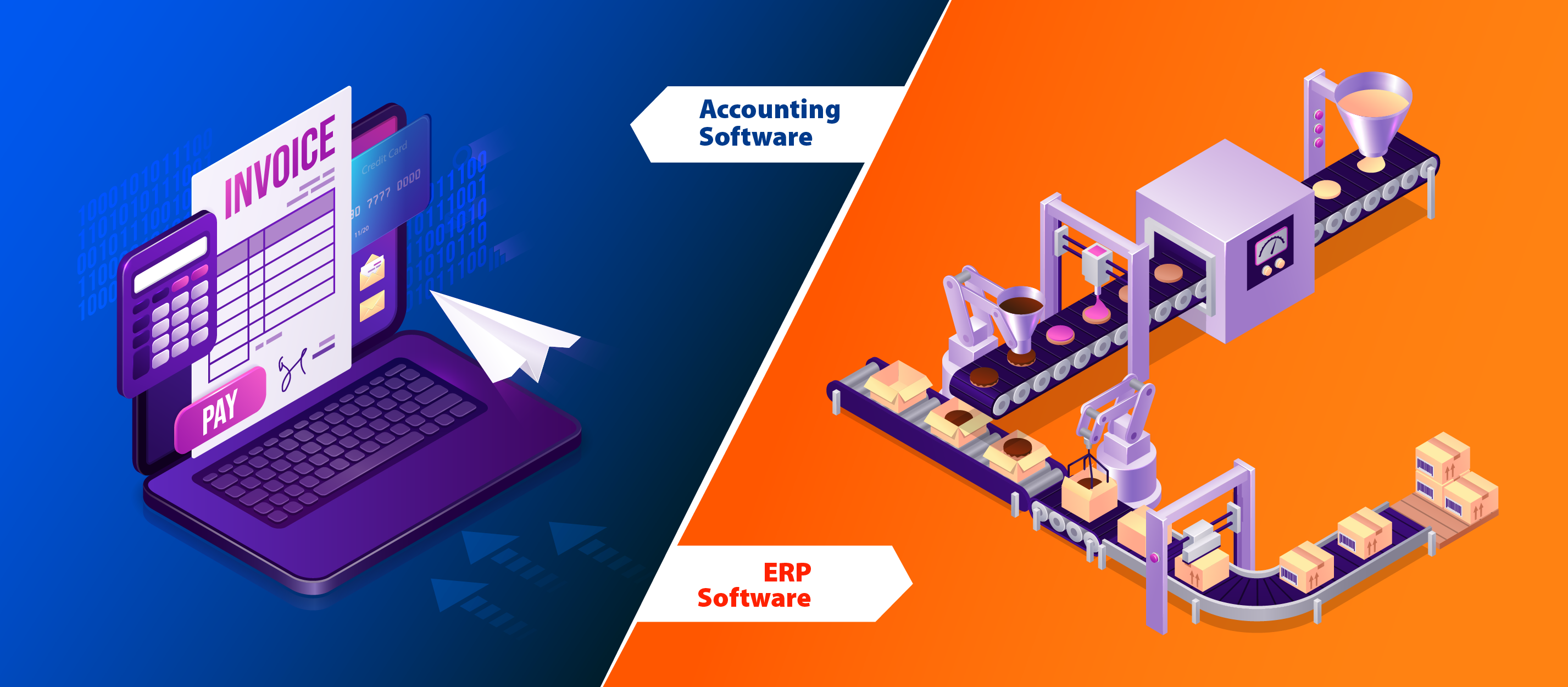Lean manufacturing has been one of the most talked about things — as well as sought after objectives — in the manufacturing businesses for quite some time now. Though the concept originated in the automobile industry, the benefits of lean manufacturing today are enjoyed across sectors. It can be defined as an approach of producing more at less cost, with waste reduction and ensuring quality at its core. Its aim is to identify practices that add value to the manufacturing process and eliminate those that don’t. On the other hand is the Enterprise Resource Planning (ERP) software, which though has a different and a much wider scope, but co-exists nicely with the lean manufacturing principles.
ERP is a tool which can help the business organizations achieve a tight control over operations and stay competitive. Through its different industry-specific modules, ERP system can help organizations manage their inventory effectively through achieving optimum inventory levels and cutting down on waste and surplus, improving manufacturing efficiencies, processes, overall quality and productivity. At the same time, an ERP solution benefits the organization on the whole as well, it helps the organizations manage men, machine, money and materials apart from managing just the operations.
At the surface, these two systems seem mutually exclusive. This is due to the fact that either of them can function properly in the absence of the other. However, synergy still exists between lean manufacturing and ERP, even if they appear to be disjoint. When used together, they can be highly beneficial for an organization. Take for example, the latest generation of ERP systems, which come with many analytical features that naturally support the lean initiatives, such as the WIP reports to control the release of work to the floor, real-time inventory reports to reduce inventory, statistics of actual set-up times versus planned to reduce the set-up times, costs etc. It suggests that the two can work together in perfect harmony. Read on for more on how ERP fits-in with lean manufacturing principles:
Planning & scheduling
Objectives of both lean manufacturing and ERP are common when it comes to inventory:
- Avoid waste
- Reduce inventory wherever possible
- Optimize production velocities
An ERP’s inventory management module helps in managing the inventory effectively, in line with the lean manufacturing principles. It helps with planning inventory usage, replenishment, surplus and even turnover tracking. Also as we know, data is the fuel you need in order to plan things perfectly, an ERP Software can provide you with the kind of data you need to plan and schedule your shop floor processes according to lean techniques and capacity of your machines. In addition, it connects your shop floor with the top floor (management), thus giving you real time updates on productivity and processes from each of your machines and facilitates sound decision making. Besides, it also gives you ease of scheduling your production as per the machine availability, reduce the downtime and the set-up time, and ensure your output is not affected.
An ERP also helps with accurate demand tracking, as the lack of it can ruin your relationship with customers. Take for example, if your product is consistently out of stock at a store and you have to keep postponing delivery to the paying clients, those customers will leave you for good and switch to your competitors who can deliver more quickly and reliably. But with a well-implemented ERP system that has lean manufacturing methodologies at its core, you can precisely forecast the demand based on the historical data and plan your purchasing accordingly. Such planning is inclusive of fluctuating prices and availability of raw materials.
Quality management
Ensuring product quality and satisfying the customer is another lean manufacturing principle which an ERP is in complete sync with. Majority of the ERP systems come with quality management modules that allow the companies to organize and asses all of their current quality management processes. It also allows the organizations to review their quality strategy. Using an ERP, the organizations can strike a fine balance between producing quality products, delivering customer satisfaction, and ensuring profitability, all at the same time.
Productivity
An ERP ensures enhanced productivity for any manufacturing business without compromising with the quality — completely in sync with the lean manufacturing principles. This is primarily achieved by standardizing the processes, and ensuring uninterrupted flow of work, which are two of lean manufacturing’s most essential principles related to productivity. An ERP solution helps companies optimize and standardize business processes by encouraging the adoption of best practices. This leads to better performance and more efficient people, which is a direct indicator of enhanced productivity. ERP also puts in place an effective work flow, which reduces the scope of errors and reworks and maintains consistent quality. As a result, the time saved on such reworks can be used for other productive tasks.
Conclusion: In a nutshell, lean manufacturing and ERP go hand in hand. The ERP, which is an extremely valuable process planning tool, gives you the key data you need to drive the actions of your lean principles. With both of them working in tandem, you can eliminate waste, drive production and satisfy your customers more efficiently than ever before. And their benefits can be leveraged in every area of your business, not just your shop floor. The future belongs to the interconnected enterprise; and the sooner you realize this and seize the advantage, the better for you. To know more about what an ERP can do for your business, visit here, or write to us at sales@batchmaster.co.in.




















